
Kate Huppatz
Professor in Sociology, Western Sydney University
Professor Kate Huppatz is Associate Dean, Research (School of Social Sciences), and Research Lead of SAGE/Athena Swan at WSU. She specialises in the study of gender (especially women and girls), labour, care and occupations. Her recent empirical research has explored gendered violence in workplaces and relationships, gender equity in academia, and labour market inequalities for western Sydney women, having impact on policy and practice. Dr Huppatz's publications include the books: The Good Mother' (with Sue Goodwin, 2010), 'Gender Capital at Work' (2012), 'Identity and Belonging' (with Hawkins and Matthews, 2016), and 'Gender, Work and Social Theory' (2023).
Less ![]()
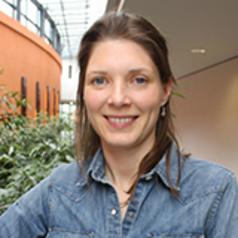
Kate Irving
Professor of Clinical Nursing, Dublin City University
Kate is currently working in Dublin City University, where she is Professor of Clinical Nursing, a joint appointment between DCU and the CHO9. She completed her PhD in 2001 at Curtin University of Technology, Western Australia. This thesis was entitled: Case studies in restraint use. Kate has a significant leadership role Irish dementia policy development and successfully led the national Dementia training initiative: Dementia Skills Elevator, aiming to develop dementia skills capacity in services and communities. Kate has led several European research consortiums in dementia prevention and approaches to care and support. Kate currently teaches the practice development module in Dementia and Ethics in Nursing on the under graduate curriculum.
Kate’s research interests include Dementia prevention/delay (Principle investigator FP7 Funded: Innovative Midlife Intervention for Dementia Deterrence), timely intervention in dementia care (Partner in FP7 funded Dem@care Ambient assisted living for dementia and JPND Actifcare, care pathways post diagnosis). Feasibility of a dementia register for Ireland (NGO commissioned). Dementia and sensor technology (Partner Demcare FP7 Funding).
Less ![]()

Kate Jordan
Senior Lecturer in Architectural History and Theory, University of Westminster
I am a senior lecturer in History and Theory in the School of Architecture and Cities at the University of Westminster. My research focuses on modern and contemporary faith architecture and inclusive heritage practices. I founded and co-lead the MA Architecture and Sustainable Heritage, which was established to explore holistic ways of understanding the relationship between tangible and intangible heritage.
Less ![]()
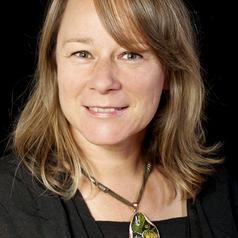
Kate Kate Delaporte
Senior Lecturer, School of Agriculture, Food and Wine, University of Adelaide
Kate is the Curator of the Waite Arboretum and Waite Conservation Reserve, a position that enables her to implement her knowledge of trees and Australian native plants, her skills in working with volunteers and community groups, and grow her various research interests. Kate’s main interest is improving Australian native plants for horticulture by research into propagation, cultivation, and breeding and selecting new varieties and species. She also has interests in supporting indigenous knowledge of food/medicines from plants; renewing the Urban Forest, sustainable agriculture and the environment; amenity horticulture (nursery, cut flower, garden design), and general horticulture (in particular small fruits and new crops such as essential oils, herbs, spices and Asian vegetables).
Less ![]()

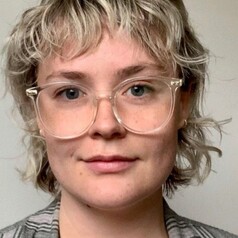
Kate Lawrence
Climate Program Manager, Institute of Climate, Energy and Disaster Solutions, Australian National University
Kate joins ICEDS from Deloitte’s Sustainability and Climate Change Team where she supported the development of the methodology for the ongoing National Climate Risk Assessment, and worked closely with federal government clients on their assessment of physical climate risk.
Kate also worked closely with ASX20 diversified mining companies to embed Environmental, Social and Governance policies at an operational level.
Prior to her role at Deloitte, Kate worked for ISS ESG as a controversy analyst, where she investigated corporate breaches of human rights and environmental norms, with a focus on the metals and mining sector.
As part of this work she engaged with ASX300 companies and their investors to better understand ongoing remediation efforts, and wrote several thought leadership pieces on behalf of ISS ESG, focusing on the Australian mining industry and its relationship with cultural heritage law.
Less ![]()

Kate Letheren
Postdoctoral research fellow, Queensland University of Technology
Dr Kate Letheren is a Postdoctoral Research Fellow at the QUT Business School. Prior to joining QUT, she spent time studying at Griffith University and also working in marketing roles on a consulting basis for a number of clients.
She is an active researcher in the areas of consumer psychology and communications, with a specific focus on anthropomorphism, anthropomorphic tendency, spokes-characters and robotics.
Dr Letheren also holds a research interest in marketing education, and sits on the editorial board for the Journal for the Advancement of Marketing Education.
In 2015, Dr Letheren was awarded a Fellowship from the Higher Education Academy in recognition of her approach to teaching and learning.
Less ![]()
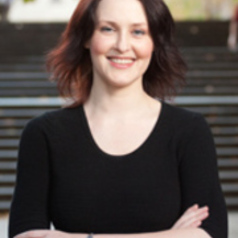
Kate Macdonald
Associate Professor, Political Science, The University of Melbourne
I joined the School of Social and Political Sciences at the University of Melbourne in January 2009. Before coming to Melbourne, I did my DPhil in the Department of International Development at Oxford (jointly supervised in the Department of Politics and International Relations), and I worked as a Fellow of Government (Global Politics) at the London School of Economics and Political Science, a Research Fellow at the Centre for Applied Philosophy and Public Ethics at the Australian National University and a Research Officer at the Department of Politics and International Relations at Oxford University.
My research focuses on transnational governance and accountability systems, especially in relation to transnational business regulation, and accountability in the international development sector. I have conducted research and consultancy work on these topics for a range of Australian and international organisations including the Forest Stewardship Council, Amnesty International, ActionAid Australia, Oxfam Australia and the UK’s Corporate Responsibility Coalition, and I am currently on the advisory board of the Jubilee Australia Research Foundation.
Less ![]()
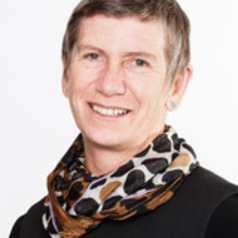
Kate MacNeill
Associate Dean, Faculty of Arts, The University of Melbourne
Qualifications
Doctor of Philosophy (University of Melbourne, 2007)
Post Graduate Diploma in Art History (University of Melbourne, 2002)
Graduate Diploma in Art History (University of Melbourne, 2000)
Postgraduate Diploma in Economics (University of Melbourne, 1991)
Bachelor of Law and Commerce (University of Melbourne, 1981)
Less ![]()
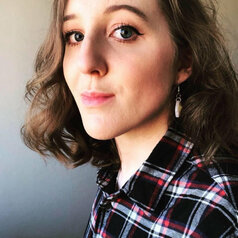
Kate Manlik
Casual Academic and PhD Candidate, Macquarie University
Kate is a PhD Candidate and Casual Academic at Macquarie University. Their PhD research explores lesbian and queer women's place in the Australian HIV/AIDS landscape.
Less ![]()
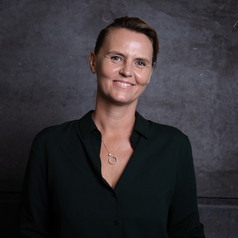
Kate Neale
Researcher, Southern Cross University
Dr Kate Neale is a childhood studies and disability studies researcher who explores the benefits of time spent gardening and in greenspaces on wellbeing and social connection. She has a particular interest in how gardening and greenspaces can help change the dominant narratives and common perceptions of vulnerable or priority populations. She believes gardening is a wonderful way to demonstrate meaningful participation on issues that affect us all and is passionate about the design of greenspaces that are truly accessible and inclusive to all. Her groundbreaking work has illuminated the positive impacts of horticultural activities on physical and mental health, social inclusion and access to support services. Her dedication to this field not only contributes to advancing our understanding of the positive effects of nature on wellbeing, but also empowers communities to create nurturing environments that foster growth and healing among communities.
Less ![]()

Kate Nicholls
Senior Lecturer, School of Social Sciences and Public Policy, Auckland University of Technology
Less ![]()
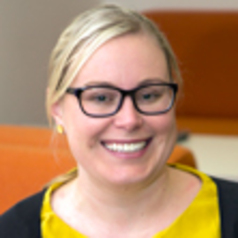
Kate O'Hara
PhD student, Clinical Pharmacology and Toxicology, University of Newcastle
Kate O'Hara is an experienced pharmacist and pharmacology researcher. She is the current Vice President of SHPA
Less ![]()
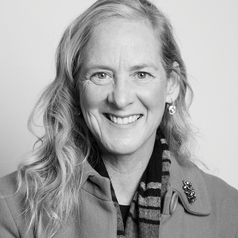
Kate O'Reilly
Senior Lecturer School of Nursing and Midwifery, Western Sydney University
Kate O’Reilly is a Senior Lecturer with the School of Nursing and Midwifery at Western Sydney University and teaches into both the undergraduate and post graduate programs. Kate’s research interests are related rehabilitation following traumatic brain injury, perimenopause and menopause and women's sexual and reproductive health.
Less ![]()
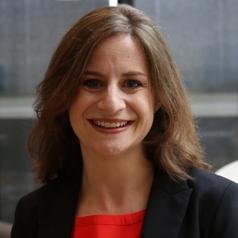
Kate Orkin
Associate Professor in Economics and Public Policy, University of Oxford
I am an Associate Professor in Economics and Public Policy and Senior Research Fellow at the Blavatnik School of Government, University of Oxford. I am an affiliate at the Abdul Latif Jameel Poverty Action Lab and the Centre for the Study of African Economies. My work has been published in leading journals including the American Economic Review and Journal of the European Economic Association.
I have an MPhil and PhD in International Development from Oxford. I was a Rhodes Scholar, a Proctor Fellow at Princeton University and a Research Fellow at the Institute for Advanced Study in Cambridge.
My work is in labour, public, behavioural and development economics. I create new public policy interventions with NGOs and governments which aim to reduce poverty or improve employment and earnings. I test these programmes in large-scale field experiments, producing both papers relevant to academic debates and findings which can be applied in policy and programme design.
Less ![]()

Kate Patterson
Kate Patterson uses visual language to transform complex scientific concepts for a general audience. Kate is a trans-disciplinary researcher working at the interface of art and science, using storytelling to bring together the historically segregated fields of technology, art and science.
Communication is a critical component of medical research and through the use of traditional animation, computer generated imagery and 3D animation, Kate transforms raw scientific data using the tools of visual arts and cinematography into a form that can be used for education, communication and awareness purposes. She uses both hand drawn, frame by frame animation as well as state-of-the art animation software (Maya and After Effects) to create engaging science stories.
Kate graduated from the University of Sydney faculty of Veterinary Science in 2003. She worked full time as a small animal veterinarian until 2005 and then continued to work part time in clinical practice while completing her PhD in cancer research, signal transduction at the Garvan Institute which was awarded in 2009.
More recently, Kate worked as a biomedical animator as part of the VIZBIplus team and the Inspiring Australia Unlocking Australia's potential initiative. She now works with Professor Susan Clark, head of the Genomics and Epigenetics division at the Garvan Institute, is a Fellow of the 3D Aesthetics and Viualisation laboratory and lecturer at UNSW Art and Design.
Less ![]()
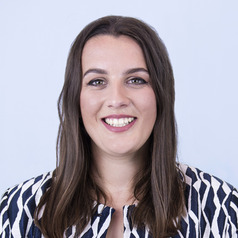
Kate Pattison
PhD Candidate, RMIT University
Kate is a third year PhD Candidate at RMIT, researching pop music fans and creativity. In particular, she's interested in whether the skills developed within music fandom can be transferred into professional environments. Through her research, she's speaking with fans of Harry Styles, Delta Goodrem, Taylor Swift and BTS. Kate also works as a social media consultant in the entertainment industry.
Less ![]()

Kate Reed
Professor of Sociology and Director of the Sheffield Methods Institute, University of Sheffield
Kate Reed is Professor of Sociology and a Fellow of the Academy of Social Sciences. She became Director of Sheffield Methods Institute in February 2022. Kate joined the Department of Sociological Studies at the University of Sheffield in January 2004, and worked with SMI from 2017 as Faculty of Social Sciences Director of Doctoral Programmes.
Her teaching interests are focused in the areas of health, social theory and research methods. She has a strong interest in creative qualitative methods and is well known particularly for her work on sensitive research. She has written and researched extensively on reproductive health. She was the Principal Investigator of the research project: ‘End of or Start of Life’? Visual Technology and the Transformation of Traditional Post-Mortem funded by the Economic and Social Research Council. This project aimed to understand how bereaved parents, along with the professionals who care for them, both feel about, and experience, the minimally invasive post-mortem process. This project won the ESRC Outstanding Societal Impact Prize in 2019.
Kate has published widely in the areas of pregnancy screening, reproductive loss, gender, visual health technology and social theory. She also mentors postdoctoral researchers who are conducting research on various aspects of health and illness and are funded by the ESRC, Foundation for the Sociology of Health and Illness and the Wellcome Trust.
Less ![]()
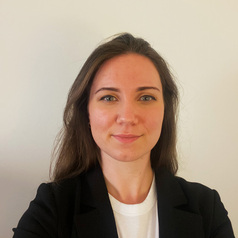
Kate Scott
PhD Candidate in Social and Political Sciences, University of Sydney
Kate Scott is a PhD candidate in Social and Political Sciences at the University of Sydney. Her current research focuses on deradicalisation within the manosphere, specifically examining the processes that enable or hinder individuals in disengaging from extreme Red Pill Communities. She is interested in the intersection of violent extremism, radicalisation, and gender within digital spaces. Prior to their doctoral studies, Kate completed their honours at the University of Sydney, focusing on online hate speech, U.S. security, and reproductive rights.
Less ![]()

Kate Scott
Researcher in Climate Mitigation, University of Leeds
I have recently completed a PhD on the integration of embodied emissions into UK climate policy. My research includes: climate mitigation, consumption-based emissions accounting, resource efficiency, low carbon transitions and scenario analysis.
Less ![]()
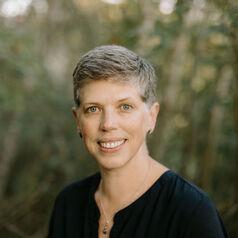
Kate Sherren
Professor, School for Resource and Environmental Studies, Dalhousie University
Kate Sherren is an applied social scientist who spends most of her time thinking about landscape change. She studies how we see, use, experience, and value modified landscapes like farms, coasts, and hydroelectric dams—among other things—and how in the face of climate change we can work collectively towards more sustainable and just future for the places we live in and care about.
Less ![]()
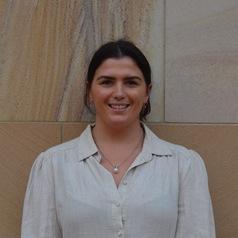
Kate Simpson
Sessional academic, Bond University
Kate Simpson is a Provisional Psychologist and Sessional Teaching Fellow at Bond University. Kate is currently completing her Master of Psychology (Clinical) while tutoring in psychology subjects. Kate has published evidence-based research on nostalgia, food and mood.
Less ![]()
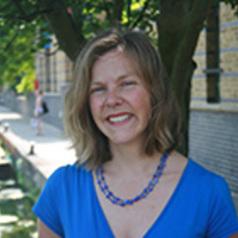
Kate Spencer
Professor of Environmental Geochemistry, Queen Mary University of London
Kate has over 20 experience as an environmental geochemist and coastal scientist. Her work is interdisciplinary and she works with geomorphologists, modellers, oceanographers, engineers and ecologists to provide the fundamental science to help manage sediment and pollutants in coasts, estuaries and lowland rivers. Much of her work explores how climate change (sea level rise, flooding, erosion) and anthropogenic activities impact polluted sediments and the potential consequences for ecological health and the water environment. She has also worked with material scientists and engineers to develop innovative approaches to examine the microscale structure of sediments to help predict their transport and how coastal salt marshes respond to storm events. She has been president of the Estuarine and Coastal Science Association and provided expert advice to Defra, the Environment Agency, the United Nations and the environmental sector on issues associated with sediment pollution, sediment management and historic landfills.
Less ![]()
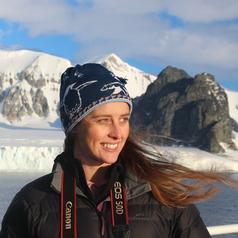
Kate Sprogis
Adjunct Research Fellow, UWA Oceans Institute, The University of Western Australia
Australian marine mammal biologist. PhD on the behavioural ecology of bottlenose dolphins (habitat use, abundance and distribution, home range, climate change), through Murdoch University, Australia. Post-doctorate on anthropogenic noise impacts on humpback whales, as a Marie Skłodowska-Curie Fellow in the Marine Bioacoustics Lab, Aarhus University, Denmark.
Less ![]()
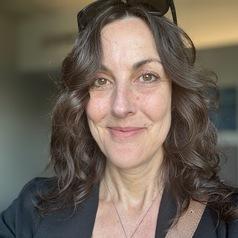
Kate Swanson
Professor in International Development Studies and Canada Research Chair, Dalhousie University
Dr. Kate Swanson is a Tier 1 Canada Research Chair in International Peace, Security and Children and a Professor in International Development Studies at Dalhousie University. While she has wide ranging interests in critical human geography and development, much of her current research focuses on youth migration, violence, and forced displacement in Latin America and the U.S./Mexico border region. Her other work includes research on gentrification, policing, and informal economies; borders, migration, and asylum; emotional geographies and care ethics; higher education and learning; and environmental policy. She is currently developing new research on fisheries, labour, and human rights in the Americas.
Less ![]()
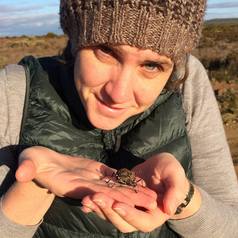
Kate Umbers
Senior Lecturer in Zoology, Western Sydney University
Senior Lecturer in Zoology at Western Sydney University, Managing Director of Invertebrates Australia, Biodiversity Council councilor, co-chair of the IUCN Grasshopper Specialist Group. Former member of the NSW Threatened Species Scientific Committee, former president of the Australasian Society for the Study of Animal Behaviour.
ORCID: https://orcid.org/0000-0002-9375-4527
Less ![]()
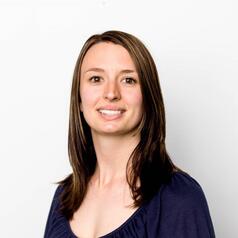
Kate Vincent
Lecturer in Social Work, Social Work Program Convenor, University of Tasmania
I am a White, Euro-Australian, cisgender female, living and working in lutruwita / Tasmania. I am a Lecturer in Social Work and the Social Work Program Convenor at the University of Tasmania.
Less ![]()

Kate Vitasek
Professor of supply chain management, University of Tennessee
Kate Vitasek is an international authority on the art, science and practice of highly collaborative business relationships. Her Vested® business model for highly collaborative relationships has been featured on CNN International, Bloomberg, NPR and Fox Business News. Vitasek is the author of seven books, including Vested: How P&G, McDonald’s and Microsoft Are Redefining Winning in Business Relationships; Getting to We: Negotiating Agreements for Highly Collaborative Relationships; and Contracting in the New Economy. Her work has been featured in more than 300 articles including in the Harvard Business Review, Chief Executive Magazine, Forbes and Journal of Commerce.
Vitasek is in the Sourcing Industry Group’s Hall of Fame and is a World Commerce and Contracting Fellow. She has been named a Rainmaker by DC Velocity Magazine, Woman on the Move in Trade and Transportation by the Journal of Commerce, and a Power Influencer by World Financial Magazine.
She is the lead faculty for UT’s Certified Deal Architect Program.
Less ![]()
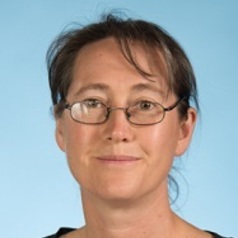
Kate Wilson
Senior Lecturer, School of Engineering and IT, UNSW
Kate is a UNSW Scientia Education Fellow and senior lecturer in the School of Engineering and Information Technology and Learning and Teaching Group at UNSW Canberra (at the Australian Defence Force Academy). Kate teaches engineering mechanics and two teaching training programs for early career academics.
She has a PhD in physics from Monash University, and has done research in computational physics and condensed matter physics. Her current research interests include student learning, the transition from school to university and gender differences in performance on assessment.
Kate is coauthor of an undergraduate physics textbook and four high school physics textbooks, and has also contributed to texts on chemistry and biology.
She is a past director of the Australian Science Olympiads Physics Program and honorary member of the Sydney University Physics Education Research group.
Less ![]()
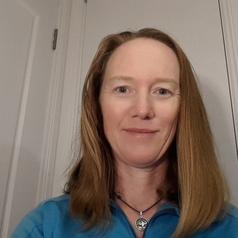
Kate Wingrove
PhD Candidate at the Sustainable Buildings Research Centre, University of Wollongong
Kate Wingrove is a current PhD candidate at the Sustainable Building Research Centre, at the University of Wollongong.
Kate's research focus is to investigate the design processes which lead to enhanced sustainable outcomes for new build housing, in order to identify practicable pathways for increased design of sustainable housing in Australia. Kate is interested in how to integrate critical design processes into the volume build business model to improve sustainability outcomes for new build homes in Australia.
Less ![]()

Kate Woodward
Lecturer in Film Studies, Aberystwyth University
My current and ongoing areas of research focus on Welsh film (both Welsh and English language), Welsh film history, contemporary Welsh film, cultural policy and cultural institutions including S4C and the Arts Council of Wales. Current and recent projects include an exploration of location, space and place in Hinterland / Y Gwyll, a study of Welsh language music documentaries, landscape and the concept of the border in the film On the Black Hill (1987), and cultural policy since devolution.
Less ![]()
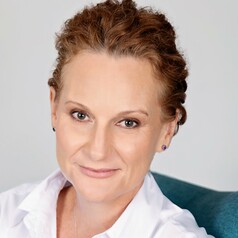
Kate E. Williams
Adjunct Associate Professor, Queensland University of Technology
Kate Williams is an Adjunct Associate Professor in the School of Early Childhood & Inclusive Education at QUT and is currently the Executive Manager of Operations for Play Matters Australia. Kate has a PhD in early childhood development, and is also a Registered Music Therapist. She has published more than 60 papers on children’s social emotional development, early learning, early childhood education and care, and parenting. Kate has undertaken a range of contracted research reports and evaluations for government, with a focus on longitudinal quantitative data.
Less ![]()

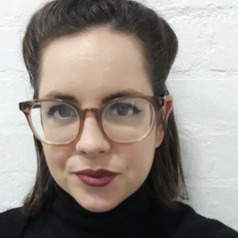
Kate McNicholas Smith
Lecturer in Television Theory, University of Westminster
Kate has a background in sociology, media and cultural studies and gender and sexuality studies. Her research is concerned with queer, feminist engagements with popular culture and celebrity, with a particular focus on television. Recent research explores LGBTQ+ lives and representations; queer fan cultures; social media; gender, sexuality and celebrity; television and society/social change.
Kate holds a BA in Drama and Theatre Studies (2006, Royal Holloway, University of London), an MA in Gender and Women's Studies and English (2008, Lancaster University), and an MA in Sociological Research (2010, Lancaster University). Her PhD research (2014, Lancaster University) combined television studies, fan studies, feminist and queer theory.
Between 2011 and 2017, Kate taught at Lancaster University across Gender Studies, Media Studies and Sociology. Joining the University of Westminster in 2018, Kate teaches television and media theory on BA Television Production, BA Film and MA Film, Television and Moving Image, specialising in teaching on media and representation; contemporary television culture; and audiences.
In 2020, Kate's book Lesbians On Television: New Queer Visibility and The Lesbian Normal was published by Intellect. The twenty-first century has seen LGBTQ+ rights emerge at the forefront of public discourse and national politics in ways that would once have been hard to imagine. Focusing on the small screens of Europe and North America, Lesbians on Television maps the contemporary shifts in lesbian visibility within popular media and, from this, extracts a figure of the new 'lesbian normal' that both helps and hinders those it represents. This book offers a unique and layered account of the complex dynamics in the modern moment of social change, drawing together critical social and cultural theory as well empirical research, which includes interviews and multi-platform media analyses.
Lesbians on Television is available Open Access here.
Kate's current research has two central strands:
- The politics of televisual nostalgia and
- Contemporary representations, rights and social shifts around queer/LGBTQ+ families.
Kate would welcome PhD applications on topic including: LGBTQ+ representation/queer media; gender and media; media and social issues/change; audiences/fandoms; social media and activism/social change; youth media; television studies on themes including: nostalgia; youthification; representation; EDI on and off screen.
Less ![]()
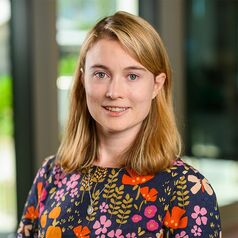
Kate R Saunders
Lecturer, Monash University
Kate Saunders is a lecturer in the Department of Econometrics and Business Statistics whose research interests are in statistical climatology. Her primary focus is on modelling climate extremes; and understanding how the probability of extreme events might be influenced by climate change. Other interests include; statistical post-processing of meteorological forecasts, quality control of meteorological data and how to estimate the risk posed by compound weather events. Kate’s research improves our understanding of the probability of extreme climate/weather events and helps us to make informed decisions about natural disaster risk.
Less ![]()
- Market Data
















